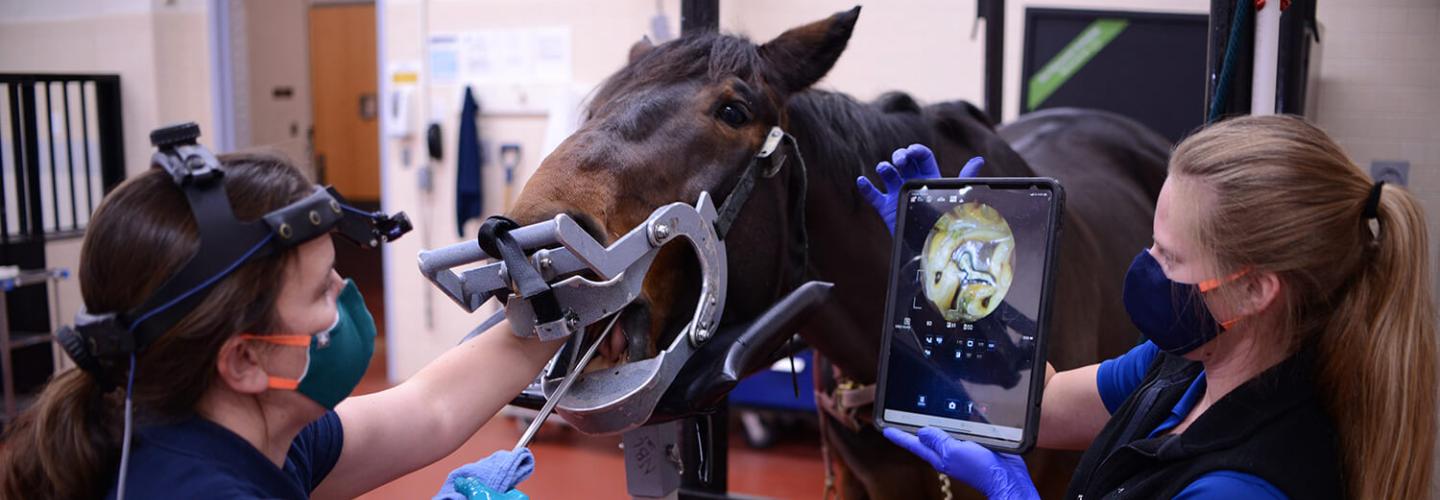
Equine Dentistry
What we do
Horse’s teeth are specialized to process the type of food they eat. As a horse ages, its teeth wear down. This is a normal process in the horse; however, it is different from dental wear in small animals. Regular attention to your horse’s teeth by a trained and skilled veterinary dentist will support the overall, long term oral health of your horse.
To ensure your horse enjoys a healthy and pain-free life, it is crucial to have its teeth regularly examined by a qualified veterinary dentist.
Our Service
About the Equine Dentistry Service
We recommend owners schedule annual, routine dental exams to assess for potential problems including fractures, infections, uneven wear, tooth loss, abnormal development, and oral cancers.
- Annual dental exams
- Oral exams, diagnosis, and consultations
- Advanced imaging
- Odontoplasty (tooth shaping) to address abnormal wear
- Periodontal disease and diagnosis
- Surgical and oral dental procedures
- Performance oral exams including bit evaluations
- Geriatric dental care

